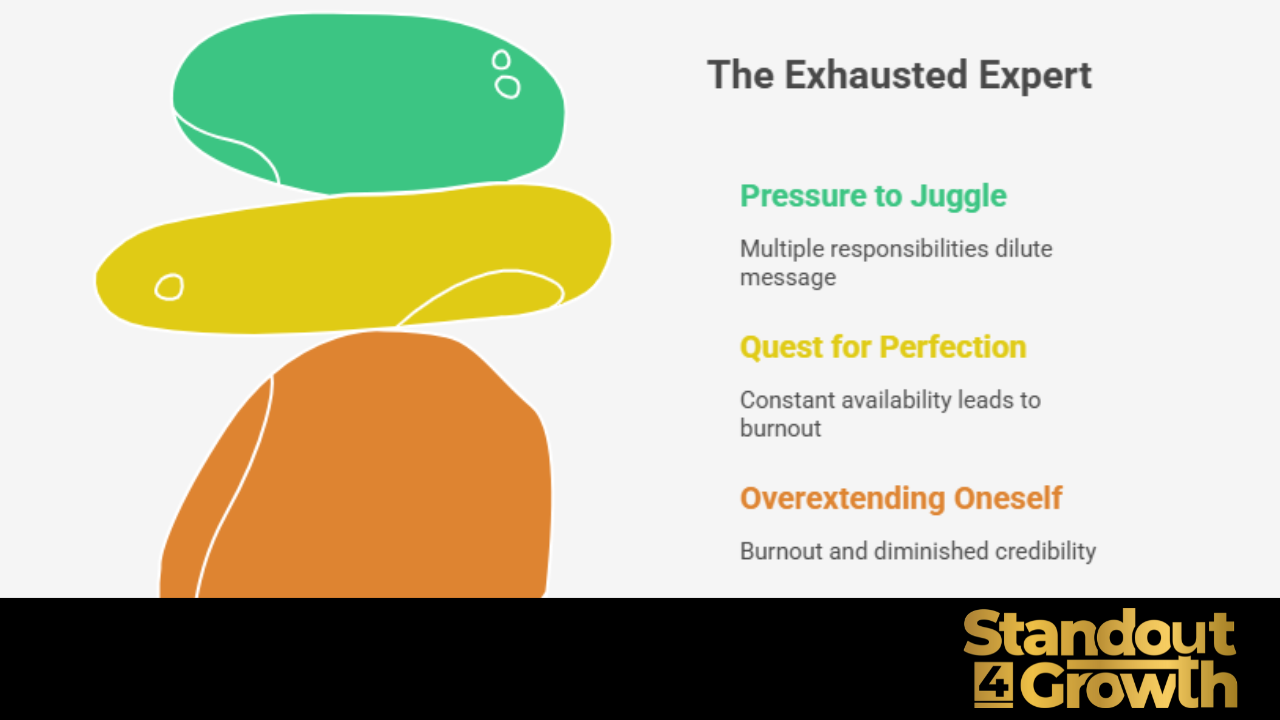
Is ego your middle name?
Have you ever been around those children who can’t seem to take no for an answer? Who grab all the

As professionals, we often think of personal branding as a solo pursuit — a deliberate curation of how we show up in the world, both online and offline. But the truth is, your personal brand doesn’t exist in a vacuum. It lives in the minds of others. And that’s why one of the most overlooked, yet powerful, strategies in building or evaluating your personal brand is engaging your stakeholders — the people who experience your brand every day.
Whether you’re a leader, a rising professional, a consultant, or an entrepreneur, your personal brand is co-authored by those around you. And if you want a brand that is authentic, relevant, and influential, then you must be open to seeing yourself through their eyes.
Stakeholders are the people who have a stake in your work, your growth, and your presence. This could include:
Each of these people sees a different slice of who you are — they observe your values in action, witness your impact, and interact with your strengths and style. Their collective perception is the space your brand lives in, and that’s what makes their insight so valuable.
Understanding how others perceive your personal brand is one of the most powerful tools you can use to refine and grow it. While you may be clear about your intentions — perhaps you aim to come across as collaborative, innovative, or strategic — the real measure of your brand is how those intentions land with others. That gap between intention and impact is where stakeholders offer invaluable insight. They experience you in real time and can highlight disconnects or affirm your strengths in ways you might not recognize on your own.
Beyond this, the people in your circle are also the best mirror for brand consistency. Your personal brand should feel familiar and aligned whether someone encounters you in a formal presentation, an informal meeting, or through your social media presence. When you engage people across different environments, you gain clarity on whether your brand is consistent — or if it shifts in ways that may be confusing or dilute your message.
Further, stakeholder perspectives help refine your value proposition. Different people experience your brand in different ways. A manager may see you as a strategic thinker, while a teammate appreciates your collaborative spirit. Understanding these varied viewpoints allows you to tailor your messaging, emphasize the right strengths in different contexts, and identify unique differentiators that set you apart. When your brand resonates clearly with others, they become natural ambassadors, recommending you for opportunities and reinforcing your reputation in ways you can’t do alone.
Another reason to value perspective is that stakeholders often see your differentiators more clearly than you do. The qualities that make you unique — your calm under pressure, your ability to simplify complex ideas, your knack for bringing people together — might seem ordinary to you because they come naturally. But to those around you, they may be your standout traits, the ones they rely on and admire most. These are the building blocks of a compelling personal brand, and you’re more likely to uncover them when you’re open to hearing how others describe the value you bring.
Stakeholders also serve as a catalyst for new opportunities. When they understand and believe in your brand, they open doors—introducing you to key connections, endorsing your skills, and advocating for you in professional circles. A former colleague praising your problem-solving ability to a hiring manager or a client publicly applauding your work on LinkedIn amplifies your credibility far beyond what self-promotion can achieve.
Yet not all feedback will be positive, and that’s where the real growth happens. Constructive criticism from trusted sources helps you adapt to industry shifts, refine your communication, and avoid reputation pitfalls before they become obstacles. Whether it’s adjusting your LinkedIn content to better engage your audience or upskilling to meet market demands, stakeholder input keeps your brand relevant and resilient.
In every phase of your brand journey, engaging with the perspectives of others gives you a fuller, more grounded view of yourself — one that can inspire more authentic decisions and amplify your impact.
Engaging your stakeholders doesn’t require a formal process, but it does call for intention.
So how do you engage stakeholders effectively?
These open-ended questions invite honest reflection and often surface rich insights.
Your personal brand is both a mirror — reflecting who you are and what you stand for — and a window, offering others a glimpse of the value you bring. To polish that mirror and expand that window, don’t go it alone.
Tap into the perspectives of those around you.
Engage your ecosystem.
Because your brand isn’t just about you. It’s about the experience of you — and your stakeholders are the ones living that experience every day.
So, ask. Listen. Reflect. Evolve.
That’s how personal brands grow from good to great and eventually #standout4growth
Looking to build a Winning Thought Leadership brand that stands out? Click here to join our upcoming masterclass ‘Turn Your Ideas Into Influence – Thought Leadership Masterclass’
You can also check out our self paced on-demand course on Udemy and get learning

Have you ever been around those children who can’t seem to take no for an answer? Who grab all the

The Exhausted Expert refers to the professionals whose attempt to do everything ultimately harming their energy and personal brand. I

How consistent is your brand outlook to the world? Have you heard of the story of the lady who loved